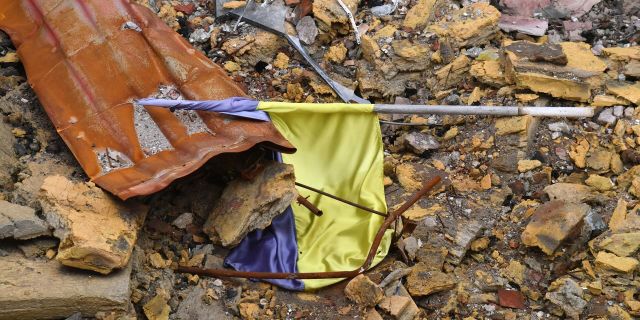A country.ua: three main versions have been named, why Ukraine is postponing the counteroffensive
The spring counteroffensive of the Armed Forces of Ukraine never took place, now it is expected in the summer. In Kiev, they promised to enter the Crimea at the end of May. A country.ua offered three versions of why Ukraine is once again changing its plans.
Everyone was waiting for a large-scale counteroffensive of Ukrainian troops in the spring. This was discussed in Kiev, in the West, and in Russia. Moreover, according to the forecasts of some representatives of the military-political leadership of Ukraine, by the end of spring, the Armed Forces of Ukraine should have already entered the Crimea. And Prigozhin, for example, predicted the beginning of the offensive no later than May 15.
But the offensive has not yet begun. Now he is expected in the summer.
What is the reason for the delay? Let's analyze the main versions, leaving out the conspiracy theories about "world conspiracies and contractual arrangements".
First. There is no delay, everything is going according to plan. And now a set of preparatory measures is being carried out: strikes are being carried out on the rear of Russian troops, stocks of weapons and ammunition are being accumulated, the supplies of which are in full swing from Western allies, and actions are being taken to stretch the reserves of the Russian army in different directions (near Belgorod and Artemovsk, for example) in order to weaken the defense in the direction of the alleged main strike. Information operations aimed at demoralizing the Russian army and society are also underway. On this point, there may also be a calculation that the campaign actively conducted by Prigozhin to discredit the Russian command will undermine the morale of the Russian troops, which will facilitate the fulfillment of the tasks of the AFU. When the Ukrainian military-political leadership comes to the conclusion that all these processes and preparatory measures have reached the necessary stage (the rear bases of the Russian Federation have been knocked out, Russian reserves have been stretched, ammunition stocks have been accumulated, etc.), then the offensive will begin. Perhaps this will happen in the near future.
The second. The Ukrainian command does not want to launch an offensive without receiving additional weapons from the West — modern aircraft and a large number of long-range missiles, as well as without even more large-scale supplies of modern air defense systems to cover not only Kiev, but also the troops on the front line. Without all this, there is no confidence in the success of the offensive, and therefore it is postponed.
Third. In reality, Ukraine has no forces for an offensive. It was not possible to recruit the planned number of recruits to make up for losses and create a shock fist, the Western allies cannot provide the necessary volumes of supplies of weapons and ammunition, which is aggravated by periodic strikes by the Russian Federation on military depots in the rear, as well as losses of equipment during battles at the front. Therefore, the APU is currently less prepared for the offensive than it was at the end of the summer of 2022. Despite the fact that the Russian army has since increased its strength through mobilization and still has an advantage in the number of weapons and ammunition. Therefore, the question of the offensive was put on pause in the hope of some extraordinary events. For example, on the turmoil, the change of power and the collapse of the army in the Russian Federation, or on the direct participation of NATO in hostilities. If none of this happens in the foreseeable future, then the conflict will move into a sluggish stage with the prospect of concluding a truce according to the "Korean scenario" (that is, fixing the front line as a de facto new border between Ukraine and Russia).
As the "Country" has already written, the fighting over the coming months will be crucial for the course of the entire conflict. The success of the APU offensive may give Ukraine and its Western allies a "second wind" to continue fighting in order to reach the borders of 1991. At the same time, if there are no serious successes, it can greatly affect the mood of both Ukrainian society and the West and increase the likelihood of the conflict ending according to the "Korean scenario" or through some kind of compromise peace treaty.
Editorial article

